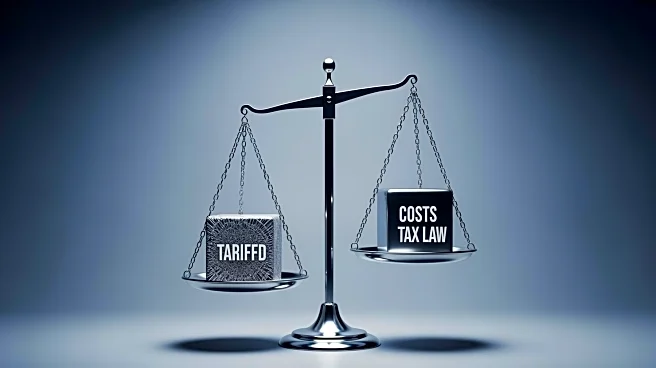Rapid Read • 8 min read
Dr. Stephen Parnis, a high-profile emergency physician and former vice-president of the Australian Medical Association, has resigned as chair of the Medical Insurance Group of Australia (Miga) board. This decision follows his public comments opposing the war in Gaza, which he shared on social media. Parnis announced his resignation in an email to Miga members, stating that he felt it prudent to step down despite not representing Miga's interests in his personal views. Miga, a major indemnity insurance provider for healthcare workers, is reviewing its social media policy in light of this situation. Parnis remains a director on the board, and his resignation has sparked a coordinated letter-writing campaign urging Miga to clarify the circumstances surrounding his departure.
AD
The resignation of Dr. Parnis highlights the tension between personal expression and professional roles within organizations. It raises questions about the freedom of healthcare professionals to voice their opinions on international conflicts without facing professional repercussions. This situation is significant for Miga's 30,000 members, as it may influence how the organization supports its members against complaints related to personal views. The broader implications include potential impacts on advocacy and the role of medical professionals in humanitarian issues, particularly in conflict zones like Gaza.
Miga's review of its social media policy could lead to changes in how the organization governs the expression of personal views by its members. The outcome of this review may affect the organization's support for members facing complaints related to their public statements. Additionally, the letter-writing campaign could prompt further discussions within Miga about balancing governance with individual rights to free speech. The situation may also influence other medical indemnity organizations in their policies regarding members' public expressions.
This incident underscores the ethical dilemma faced by professionals who wish to engage in advocacy while maintaining their roles within organizations. It highlights the potential for social media to impact professional standing and the need for clear policies that protect individuals' rights to express personal views. The case also reflects broader societal debates about freedom of speech and the responsibilities of professionals in advocating for humanitarian causes.
AD
More Stories You Might Enjoy











